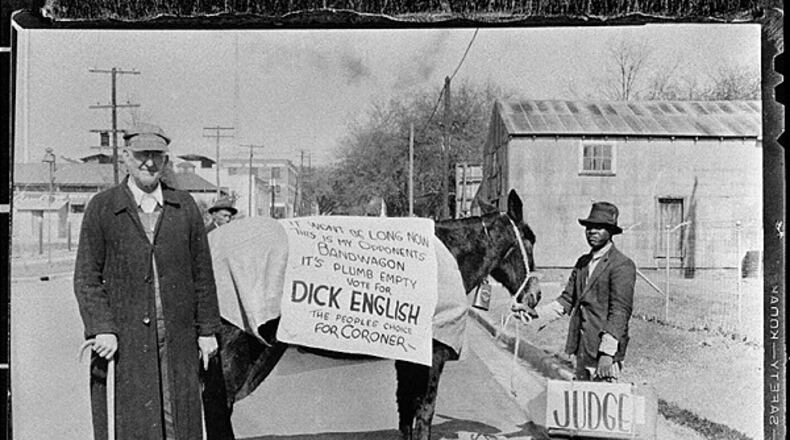Georgia's first election on record for coroner took place in 1793. William Peacock ran unopposed in Liberty County, garnering 123 votes.
Fourteen years later, Chatham County held the first contested coroner's race, according to early election records archived by Tufts University. The candidates were Michael Whitley and a man named Brown.
Brown lost the election, 357-111, and his first name was lost to history.
The political nature of the coroner's office in Georgia persists well into the 21st century. Georgia is one of 27 states that still elect some local death investigators. And, as The Atlanta Journal-Constitution reported last weekend, the qualifications for coroner in Georgia are among the least restrictive in the nation. In 154 of the state's 159 counties, anyone who is 25 or older, registered to vote and a high school graduate can be coroner.
Considering how gruesome the work can be and how low the pay is, it might seem odd that when local elections are held every four years, more than one person in most counties actually wants the job.
Even stranger is the partisanship and the negative campaigning that define the races in many counties.
In 2012, the Republican candidate for coroner in Bacon County, Vic Peacock (a descendant of Liberty County's 18th-century coroner?), published his campaign platform on Facebook. Its relevance to the coroner's duties seemed a bit tenuous.
“Here is what I want:
“Obama: Gone!
“Borders: Closed!
“Language: English!
“Culture: U.S. Constitution & the Bill of Rights.
“Drug Free: Mandatory drug screening before welfare!
“No Freebies To: Non-Citizens.”
Peacock won the election.
The same year, a 33-year-old funeral director named Mark Musselwhite was running for coroner in Forsyth County. In remarks quoted in the Forsyth County News, he aimed a bit low in attacking his opponents – one in his 60s, and another who declined to disclose her age.
“I’m significantly younger than my opponents,” Musselwhite said, “and the role of coroner is both physically and emotionally challenging and I have the energy to carry it out.”
Musselwhite lost.
None of this is new, of course.
The state archives contains a photograph that documents the 1930 campaign of Dick English, a candidate for coroner in Thomas County. English placed a sign across the back of a rather indulgent mule that he displayed in downtown Thomasville.
“This is my opponent’s bandwagon,” the mule’s sign said. “It’s plumb empty.”
English apparently became a perennial candidate for coroner. In 1940, newspapers around the country reveled in stories about his campaign that year, which featured literature that declared, "Honest inquests with a zip!" and "They got to be dead or I don't inquest 'em."
News reports from the time don’t explain why he didn’t win.
About the Author
Keep Reading
The Latest
Featured




